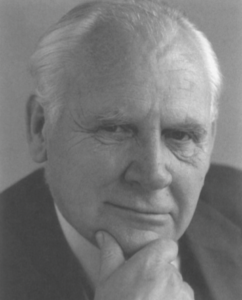|
Parkes foundation
|
|
|
- promoting the study of biosocial sciences -
The Geoffrey Harrison Prize Lecture
The Prize Lecture is awarded annually in Geoffrey Harrison’s honour to persons who have made a substantial and sustained contribution to the study of the human biology of living populations and especially biosocial sciences. Past Geoffrey Harrison Lectures Professor Melissa Parker (London School of Hygiene and Tropical Medicine), 'Ebola: A Biosocial Journey', November 2017, Oxford University Museum of Natural History Professor Nick Mascie-Taylor (University of Cambridge), 'From Genes to Latrines: A Biosocial Journey', November 2018, Oxford University Museum of Natural History Professor Thomas Leatherman (Department of Anthropology, University of Professor Stanley Ulijaszek (University of Oxford), 'Nutritional Anthropology', February 2023, University of Oxford
|
| © Parkes Foundation | Webmaster and Design | |
 Professor Geoffrey A. Harrison (1927-2017)
Professor Geoffrey A. Harrison (1927-2017)